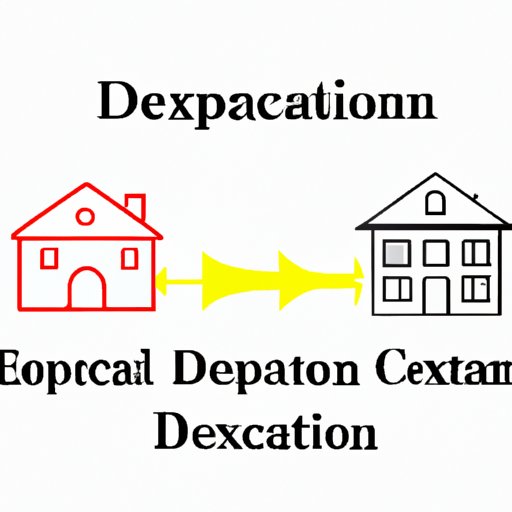
How to Avoid Capital Gains Tax on Real Estate: 5 Strategies
As a real estate investor or homeowner, you know that selling a property often means paying capital gains tax on the profit. But did you know that there are strategies you can use to avoid or defer this tax? In this article, we’ll explore five popular strategies for avoiding capital gains tax on real estate, including the 1031 exchange, creating a charitable trust, choosing your primary residence strategically, maximizing depreciation deductions, and donating appreciated real estate to charity.
The 1031 Exchange: A Guide to Deferring Capital Gains Taxes on Real Estate Sales
The 1031 exchange is a popular strategy for avoiding immediate capital gains tax on real estate sales. This strategy allows you to defer the tax by reinvesting the proceeds from your sale into a similar property.
To execute a successful 1031 exchange, there are several key steps to follow:
- Identify the replacement property
- Initiate the exchange through a qualified intermediary
- Close on the sale of the relinquished property
- Acquire the replacement property within 180 days
- Report the exchange on your tax return
While a 1031 exchange can be an effective way to defer capital gains tax, it’s important to consider the potential pros and cons. Some pros include the ability to grow your investment tax-free and maintain cash flow, while some cons include the strict requirements and timeline, as well as the potential for depreciation recapture.
Creating a Charitable Trust: A Strategy for Avoiding Capital Gains Tax on Real Estate
Another strategy for avoiding capital gains tax on real estate is creating a charitable trust. This allows you to donate the property to a charity of your choice, receive a tax deduction, and avoid paying capital gains tax on the sale.
To create a charitable trust, you’ll need to follow several key steps:
- Choose a qualified charity
- Determine the type of trust
- Transfer legal ownership to the trust
- File the appropriate paperwork with the IRS
Different types of trusts have different tax benefits and eligibility requirements, so it’s important to do your research and consult with a tax professional to determine which type is best for your situation. Some charities or causes you may consider supporting with a charitable trust include education, the arts, healthcare, and animals.
Choosing Your Primary Residence Strategically: A Way to Avoid Capital Gains Tax on Real Estate
Did you know that living in a property for a certain length of time can make it your primary residence and exempt from capital gains tax? This can be a simple yet effective strategy for avoiding tax on the sale of your home or investment property.
To qualify a property as your primary residence, you must follow certain requirements and rules, including living in the property for at least two out of the five years prior to the sale, among other nuances and exceptions. While using this strategy can potentially save you money on taxes, it’s important to consider the potential downsides, such as being tied to a property and potentially limiting investment opportunities.

Maximizing Depreciation Deductions: A Technique for Reducing Capital Gains Tax on Real Estate
Another strategy for reducing capital gains tax on real estate is maximizing depreciation deductions. Depreciation is a tax deduction that allows you to write off the value of a property over time, reducing your taxable income and overall tax burden.
To claim depreciation deductions on investment properties, you’ll need to follow a specific process and potentially leverage certain strategies, such as cost segregation, to maximize your deductions. While depreciation can be a valuable tax-saving tool, it’s important to consider the potential downsides, such as recapture upon sale or potential IRS scrutiny if not done correctly.
Donating Appreciated Real Estate: A Creative Way to Avoid Capital Gains Tax While Supporting a Cause You Care About
If you’re looking for a creative way to avoid capital gains tax on real estate while also giving back to a cause you care about, consider donating an appreciated property to charity. This can provide a tax deduction for the fair market value of the property while also avoiding capital gains tax on the sale.
If you choose to donate real estate, there are certain steps you’ll need to follow, such as choosing a qualified charity, getting an appraisal, and transferring legal ownership. Some organizations you may consider donating to include religious organizations, schools, or animal rescues.
Conclusion
There are several effective strategies for avoiding capital gains tax on real estate, each with its own pros and cons. Consider the 1031 exchange, creating a charitable trust, qualifying a property as your primary residence, maximizing depreciation deductions, or donating appreciated real estate to charity. By understanding and utilizing these strategies, you can potentially save significant money on taxes while also achieving your financial and philanthropic goals.





